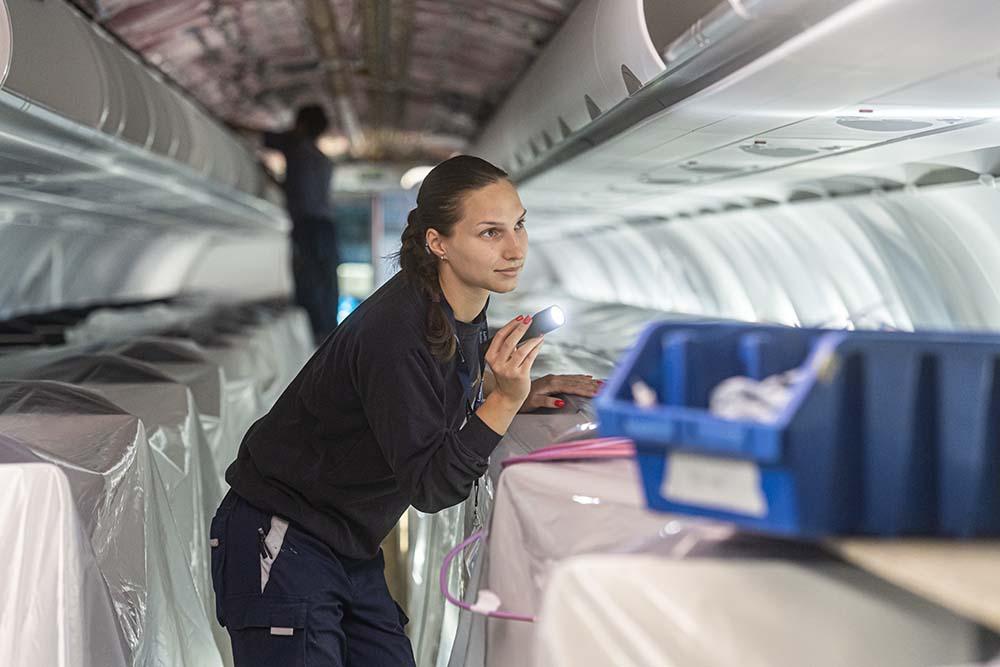
As aviation continues to recover from COVID-19 and accompanying restrictions, attendees at a recent Independent Aircraft Modifier Alliance (IAMA) webinar reviewed both the expanding modification opportunities and some challenges that confront modification shops. Among the latter are a familiar difficulty: gaining access to technical data from airframe OEMs.
Overall, the outlook is brightening. Gary Weissel, managing officer of Tronos Aviation Consulting, foresees $58 billion in retrofit opportunities in the next 10 years, even excluding avionics upgrades.
IAMA staff and other attendees listed the reasons for optimism about modifications work: pent-up demand, fleet growth, new regulatory mandates, connectivity trends, other technology innovations and the need to retrofit older aircraft to maintain fleet commonality as new types are inducted.
But challenges abound, too. Engineering capacity, staff, parts (especially electric components) and climate policies will pose difficulties, according to IAMA Technical Affairs Director Ian Devine.
An industry executive drew attention to another recovery challenge. The COVID-19 crunch caused many switches among airlines that would operate newly leased aircraft. The war in Ukraine caused a diversion of some new aircraft away from Russian carriers, but the switches are more general, from troubled legacy carriers to other airlines.
“This requires substantial work on avionics and interiors,” stresses the industry executive. Airframe OEMs also have not been able to keep up with the altered configurations these operator switches require. “They just can’t do it, or refuse to do it,” he adds. Previously, this executive says Airbus has used third-party engineers to handle these pressures, but Boeing is much more reluctant to do this. As a result, this company must now, for the first time, seek more modification work on new aircraft than it does on used aircraft.
Where airframe OEMs cannot do these reconfigurations, he wants IAMA to push these OEMs to provide data so that third-party shops can do the required work quickly and efficiently. “Some data we have access to, other data we don’t,” he says.
Weissel says Tronos had similar problems with an antenna supplemental type certificate (STC) for a cargo conversion, encountering a delay of eight months to get OEM data. “We were told by field service representatives to never mention STCs in asking for repair support,” he says.
An executive participating in the webinar says Boeing is now looking for shop partners in the U.S. and Europe, but it is not bidding on modifications work itself because it does not have capacity. “Still, they do not want to let go of the data,” he adds.
Once an STC is approved by regulators, he would like to see it automatically accepted by the airframe OEM and included in updated manuals. He says this policy would increase the commercial value of modifications such as ADS-B installations.
Jeff Behlendorf, IT director at Carlisle Interconnect Technologies, says airframe OEMs often do not accept third-party STCs because “it does not meet what Boeing or Airbus engineering would have done.”
Dana Krueger, associate director of aftermarket certification at Collins Aerospace, says data can be obtained if the airframe OEM realizes it will not sell the aircraft without the data. Behlendorf agrees, saying a customer airline can pressure the OEM into providing data.
An industry executive notes the last six months have seen Boeing Global Services replace many of its staff who deal with modifications.
Asked for comment, Boeing said it is focusing on modification customers and considering new approaches to help them. “Global events of the past several years have exacerbated challenges associated with complex modification work, and we are recovering from delays in modification execution,” says a representative for Boeing, adding that it is “hiring talent from all over the world to meet demand.”
Apart from data and STC approvals, Weissel says another challenge is getting suppliers to recognize that not only do part kits for modifications need to be certified, but some line replaceable units and life-limited parts, such as batteries within these kits, also need to be certified. Staff shortages at regulators are also causing delays, with one FAA PMA approval taking a year.
Georg Stoffelen, head of product cabin modification at Lufthansa Technik (LHT), reports that the well-known staffing and part problems are causing delays of 4-6 weeks in modification deliveries. Fortunately, Stoffelen says airlines understand these problems and do not inflict penalties on LHT, but “it’s a headache.”
*This article was amended on Dec. 14 at 2:38 pm.



